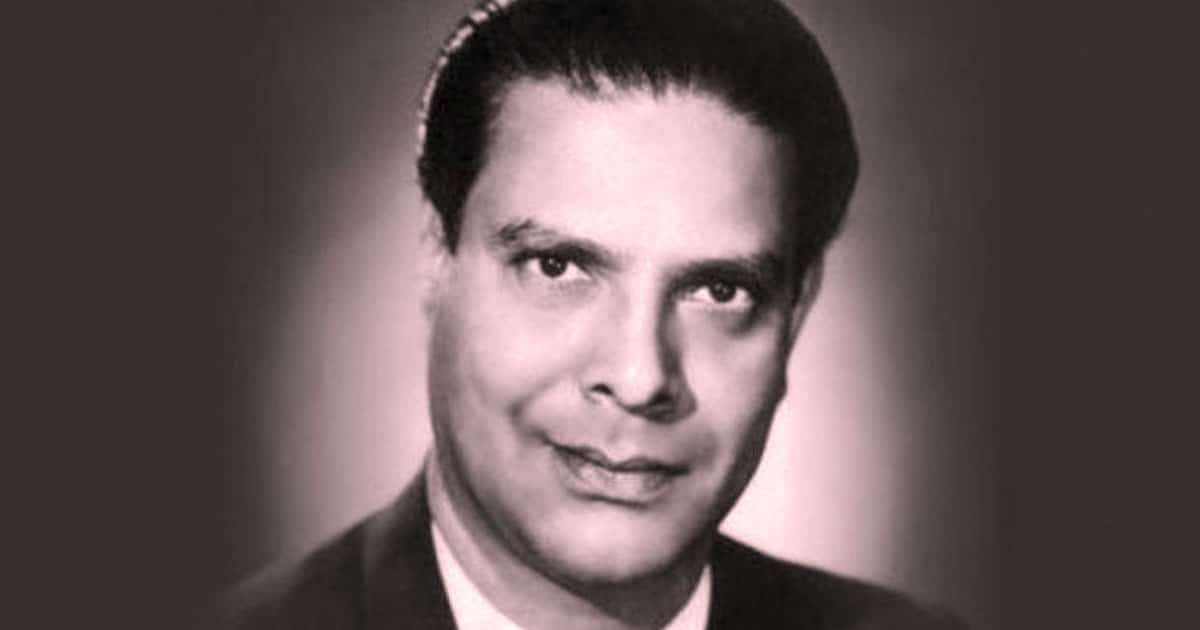Agar dil gam se khaali ho toh jeene ka maza kya hai,
Na ho khoon-e-jigar toh ashq peene ka maza kya hai,
Mohaabat mein zara aansu bahakar hum bhi dekhengey,
Teri Mehfil mei kismat azma kar ham bhi dekhengey.
Nearly six decades have passed since Shakeel Badauni (1916-1970) wrote these lyrics for the iconic movie Mughal-e-Azam. The song remains an all-time hit amongst the Bollywood numbers. Hundreds of songs. Nearly 90 movies and several Filmfare awards. This was Shakeel Badauni, the immortal lyricist for whom poetry came naturally.
He got instant success in movies, starting with his very first movie Dard (1947). Shakeel, even today, remains a poet whose name still reverberates whenever we discuss romanticism in poetry. A poet who carved a niche for himself in Mumbai and ruled the masses for several decades. Shakeel Badayuni, as the name suggests, hailed from Badaun, a mofussil town of Uttar Pradesh though famous for many more Urdu litterateurs and eminent poets. Perhaps, it was his native soil that gifted Shakeel with such extraordinary talent.
The present generation may remember him as a film lyricist, but Shakeel displayed a perfect balance of both the literary world and Bollywood.

“Shakeel Sahab very perfectly traversed between Ilm and Film, striking a balance,” young poet Akshat Ashesh, who also hails from Badaun, sums it up. Akshat is secretary of Badaun Club and organizes an annual function to commemorate the birth anniversary of the legendary poet – Shakeel Badauni.
“Apni azadi ko ham hargiz bhula sakte nahi, sar toh kata sakte hain, sar ko jhuka sakte nahi,” – this immortal song is played even today on independence and republic day. For the younger generations, Shakeel wrote, “Insaf ki dagar pe bachcho dikaho chal ke, ye desh hain tumhara, neta tumhi ho kal ke“. With goose-bumpy patriotic lyrics like this, it will be unfair to label him only as a romantic poet.
It was a mushaira in 1946 in Delhi which changed Shakeel’s destiny. Shakeel recited his ghazal, “Gham-e-Ashiqui se kah doh raah-e-aam tak na pahunche, mujhe khauf hai ki tohmat mere naam tak na pahunche. Main Nazar se pi raha tha toh dil ne badduah di, tera haath zindagi bhar kabhi jaam tak na pahunche.”
Musician Naushad suggested that Shakeel should come to Mumbai. Film Director A R Kardar heard this ghazal and invited Shakeel to Mumbai. After that, he teamed up with ace musician Naushad and debuted with film Dard in 1947. The song “Afsana likh rahi hoon…” is still an all-time hit. Together with Naushad, he made history, writing for super hit movies with his themes echoing across the country. The list also includes famous movies as Baiju Bawra (1952), Mother India (1957), and Mughal-e-Azam (1960), Dulari (1949), Shabab (1954), Ganga Jamuna (1961), and Mere Mehboob (1963).
Shakeel did not confine himself with Naushad but also had good chemistry with other musicians. Shakeel also wrote a substantial chunk of his songs for music director Ravi Sharma. Prominent amongst those were Gharana, Ghunghat and Grihasti, and Phool Aur Patthar, Chaudhvin Ka Chand, and Do Badan. Shakeel also penned memorable lyrics for Hemant Kumar in movies Bees Saal Baad, Sahib Bibi Aur Gulam, Bin Badal Barsaat. Shakeel also wrote for the tunes of S D Burman for movies Kaise Kahoon & Benazir.
Also, read: Shahryar – The Immortal Poet Behind Umrao Jaan’s Cult Music
There are many instances regarding Shakeel Badauni. Himanshu Bajpayi, Daastaango, recalls, “Shakeel was a born genius. Once, he wrote one of his famous ghazals and handed over the paper to legendary singer Begum Akhtar at a railway platform in Mumbai. Begum Akhtar was traveling to Lucknow. By the time she reached Lucknow, the famous tune of ghazal ‘Aiy Mohabbat Tere Anjaam pe rona aaya’ was ready and became immortal.”
Shakeel Badauni – Early Life
Shakeel Badauni was born on August 3, 2016, as the name suggests, in district Badaun of Uttar Pradesh. He studied at the local Islamia School and later at Aligarh Muslim University. At AMU, he got the company of several Urdu poets, and his skills were honed.
Shakeel won several prizes during the mushaira and poetry competitions. “He represented the University in various competitions. His fame rose, and he was being invited for local mushairas. Later, he moved to Delhi for his job but continued with his first love, i.e., poetry, attending mushairas, and writing ghazals. Soon his name became a must for all mushairas. This shows the immense popularity Shakeel had during his heydeys,” Dr. Rahat Abrar, former Director, Urdu Academy, AMU informed. Later, he moved to Mumbai and is one of the few who got instant success with his first film as a lyricist.
The locals at Badaun still remember their illustrious son and organize functions to celebrate his birth anniversary. This year, it has been delayed due to the Corona pandemic. “Still the elderlies remember and have told us that before his death, Shakeel Sahab came to Badaun for participating in a mushaira at Municipal Hall,” Akshat Ashesh said. The Badaun Club also organizes an evening in his memory and honors eminent poets with awards constituted in his memory.

